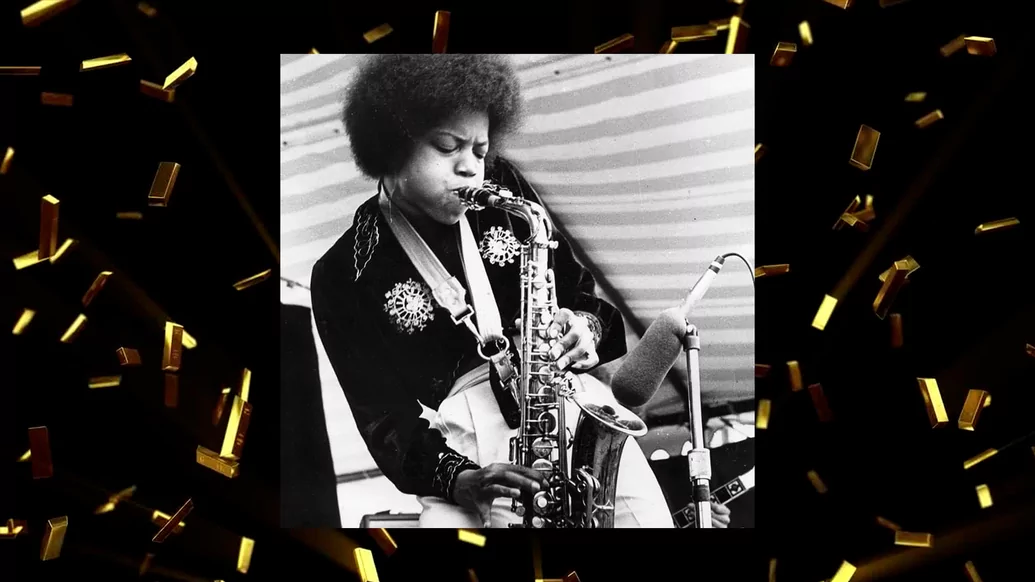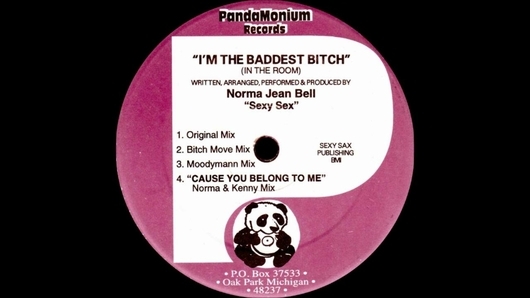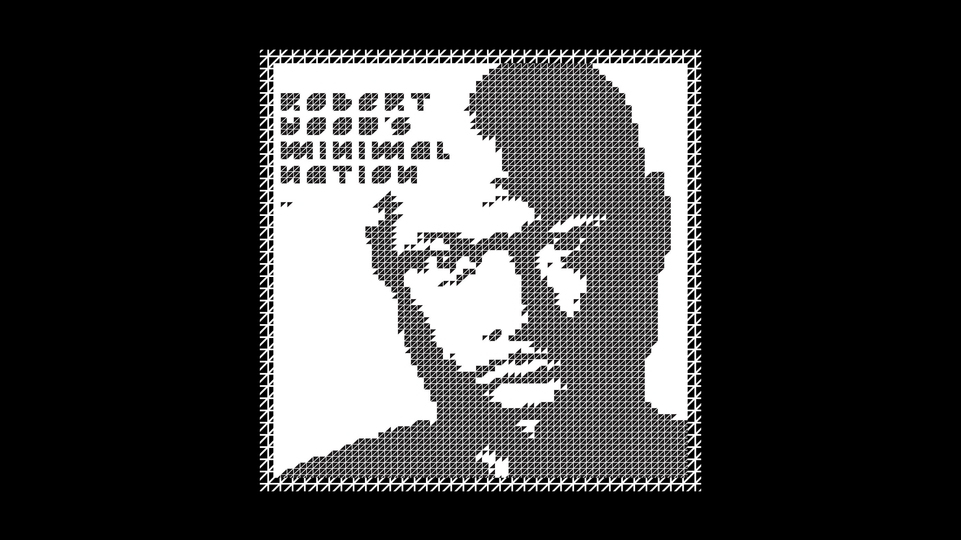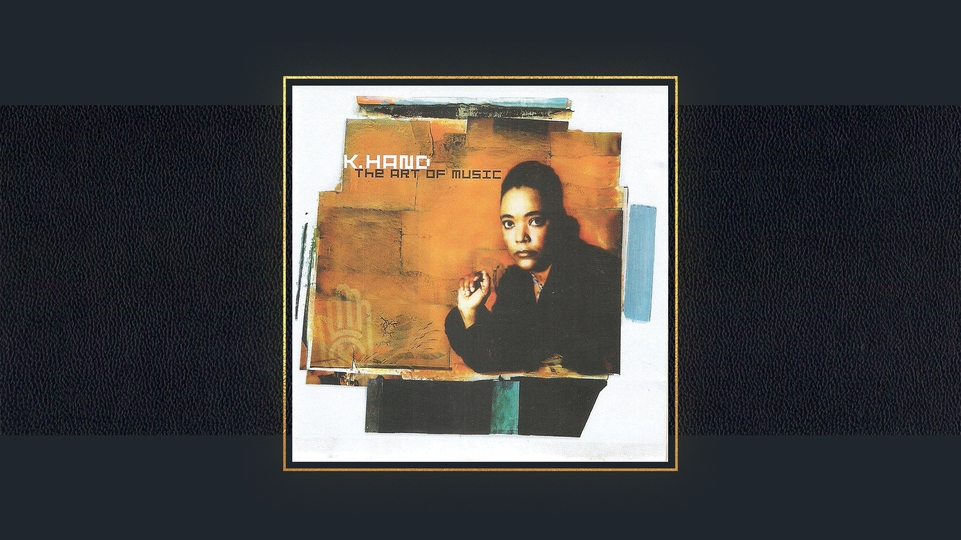
How Norma Jean Bell’s ‘Come Into My Room’ produced the perfect blend of house, jazz and sensuality
Detroit saxophonist, producer, and vocalist Norma Jean Bell is responsible for some of house music’s most glorious moments, and has worked alongside the likes of Moodymann, K-Hand, Ron Trent and George Clinton. Her full-length opus, 'Come Into My Room', released in 2001, proved that she really is “the baddest bitch in this room”
If you look in the ‘about’ section on Norma Jean Bell’s Facebook page, it says, simply, “I’m the baddest bitch in this room...” It's a brief statement that tells you all you need to know about this badass Detroit saxophone player, producer, and vocalist. But at the same time, it also feels woefully inadequate in describing a musician who has led one of the most brilliantly idiosyncratic careers in house music.
‘I’m The Baddest Bitch (In The Room)’ is the name of Bell’s eternally classic single, originally released in 1996 on her own PandaMonium label with a killer remix by close associate Moodymann. On it, Bell declares herself to be “the baddest girl in this world / because you belong to me / and everybody knows it”, oozing with self-confidence. It is a perfect house number, combining a dazzling vocal hook, drums and bass that glide through the gears like silken machinery, and saxophone lines that glissade around the vocal with the fluttering spirit of soul.
If you’ve heard it in a club, you will remember ‘I’m The Baddest Bitch’ for the way everyone suddenly felt 10 foot taller, for the way the song transformed the dancefloor into the coolest place on earth, and the sweaty ravers into towering paragons of style. If you haven’t heard it in a club, well, that’s your loss. ‘I’m The Baddest Bitch’ is also, in a remixed form, the opening number on Bell’s 2001 debut album ‘Come Into My Room’, a ravishing work of lustrous house music, late nights, female sexuality, and a sixth musical sense, featuring the best saxophone playing in all of house music.
So, yes, if Norma Jean Bell says so, then she is the baddest bitch. But she is also so much more, a shapeshifting musical enigma of exquisitely refined talent. Bell’s musical career is a mystery of oddly interconnected points and unlikely musical crossover. She started off in the mid-1970s playing saxophone in the band of Tommy Bolin, an American hard rocker who was briefly in Deep Purple; from there, she joined New York jazz fusion band Mahavishnu Orchestra, before briefly hooking up with cantankerous rock star Frank Zappa and his Mothers Of Invention.
Over an incredible five-decade career, Bell has also played with the likes of Dave Mason, Raydio, Narada Michael Walden, and Milt Jackson; in the 1980s, she joined George Clinton’s P-Funk All Stars, appearing on their 1983 album ‘Urban Dancefloor Guerillas’. There, the musical trail goes cold until 1996, when Bell formed the short-lived The Gallery Collective with legendary Chicago DJ and producer Ron Trent, and launched PandaMonium.
There followed a string of brilliant solo 12s for PandaMonium, often in the company of Kenny Dixon Jr. (aka Moodymann), in which Bell established herself as the late-night supremo of Detroit house, her vocals, keyboards, and sax, using the differing sounds of both alto and soprano, producing some of the most indelibly sensual music in the history of the genre — always funky, always musical, and with the lingering suggestion of ecstasy just around the corner.
Bell is often — unfairly — seen as a Dixon protégé. But theirs is a creative alliance of equals: He produced two (and a half) tracks on ‘Come Into My Room’ and also mixed ‘One Of Those Nites', while Bell added vocals and saxophone to three songs on Moodymann’s 2000 album ‘Forevernevermore’. More importantly, ‘Come Into My Room’ rivals anything in the Moodymann catalog for twisted deep house class, an eight-track collection of the very best feelings that house music can give.
Strangely, one of the strengths of ‘Come Into My Room’ lies in what it doesn’t have. The album kicks off not with the celebrated Moodymann remix of ‘I’m The Baddest Bitch’, but instead with ‘You Belong To Me', a gorgeous nocturnal take on the same song by Bell and Moodymann which originally appeared on the 1996 PandaMonium 12-inch, their production taking the song from the night club to the jazz hop. Bell’s saxophone traces beautiful lines around the wandering double bass and muted 4/4 beat, at one point quoting ‘My Favorite Things’, the Rodgers and Hammerstein show tune that John Coltrane transformed into a jazz classic in 1960.
It is an audacious move, both flipping off and paying homage to Bell’s most famous tune, as well as placing the album in a classic jazz lineage. But the move entirely pays off: ‘You Belong To Me’ is the ideal scene setter for the album, like the warm, nocturnal rush when you push open the door to a basement club; it also sets up the album’s brilliant push and pull between motion and stability, virtuosity and mechanics, the hypnotic repetition of house and disco rubbing up against the ever-changing nature of jazz. The sad truth is a lot of jazz-influenced house music doesn’t work, because the people producing it only understand one side of the equation.

“‘Come Into My Room' shows that Bell should have had it all and could have gone anywhere: there are few people in dance music with her combination of vocal, instrumental, production, and songwriting talent. But maybe she simply didn’t want to.”
Jazz-house from house producers is often too straight-up, the jazz influence reduced to one sample that repeats, ad infinitum, and musical progress be damned. House music made by dedicated jazz artists, on the other hand, is often too elastic and unrestrained for the dancefloor, with not quite enough repetition for the dancer to cling onto. ‘You Belong To Me’ is perfectly balanced between the two impulses, and it is a joy to hear how Bell works her way, both vocally and on saxophone, around the song’s melody.
You don’t need to be able to play an instrument to make house music, of course. But when musicians are really skilled at their craft, it can sound as if the instrument isn’t actually there, as if the musician is, instead, directly expressing their emotion. Bell, a professional musician of more than 20 years’ standing at this point, can do this perfectly. On ‘You Belong To Me’, she makes the saxophone sing with sheer pleasure; on ‘Feel What I Feel,’ her tone sounds wounded, like a brief brass lament to times passed.
‘One Of Those Nites,’ which follows ‘You Belong To Me,’ is similarly primed between control and release. Over a static but funky bassline and a shuffling drum machine, which anchor the song in deep Detroit house, Armon Davis vamps on the keyboard, while Bell lets loose on the saxophone, burning with the frantic heat of a hot summer night.
Dixon mixed ‘One Of Those Nites,’ and it is one of the occasions where ‘Come Into My Room’ comes closest to a Moodymann song, thanks largely to the middle section where Dixon introduces his habitual collage of background chatter to add grain to the music. It could be argued that Moodymann has ever produced anything as downright sensual as ‘One Of Those Nites'. His own attempts sometimes come off as rather forced, but Bell’s nonchalantly seductive tone as she purrs "One of those sexy nights" speaks of someone entirely at ease with the power of their sexuality.
Sex feels like an imperative driving the album. On some occasions — as on closer ‘Late Night Show’ or ‘Your Perfect’ — it feels implicit, sexuality wrapped up snug in the record's dusky grooves. At others — like ‘One Of Those Nites’ or ‘Dreams,’ where Bell sings that “I see you in my dreams / you’re making love to me” — the feeling is explicit, if never exactly glaring, in the vocal. Sex, of course, is hardly a taboo subject in dance music, from Lil Louis’s ‘French Kiss’ to Armand Van Helden’s ‘Entra Mi Casa’, but this is too frequently tied up in the thrust of male producers. ‘Come Into My Room’ feels like a celebration of female sensuality, a work of slow seduction, gradual touches, and imagination.
It feels important, then, that Bell worked with other women on ‘Come Into My Room’. Kelli Hand, a legendary producer of Detroit house and techno who died in 2021, provides brilliantly sharp drum programming on ‘Nobody’, the snare, bass drum and tambourine pattern bouncing with the deadly spring of a razor mouse trap, and also mixed ‘Feel What I Feel’, a combination of wandering, Larry Heard-esque basslines, downcast, airy chords, and whispery vocals from Debbie Welch, who had previously appeared on Moodymann’s ‘Forevernevermore’. Sharon Jones, who would later find success with The Dap-Kings, lends her voice to ‘Yes I Am (I’m Gonna Get You)’, dredging an incredible emotional pull out of (barely) two lines of vocal.
‘Come Into My Room’ was released by UK indie label Peacefrog in 2001, a label that had already had considerable success packaging up US dance music from producers like Moodymann and Theo Parrish (who mixed ‘Come Into My Room’s ‘Late Night Show’) into widely available CD and vinyl releases for European consumers.
It would have been no stretch to see Norma Jean Bell join Moodymann and Parrish at the very top table of underground house, with ‘Come Into My Room’ being warmly received among house connoisseurs and jazz fans alike. Sadly, though, the stardom that such a wonderful album merited was not forthcoming, and Bell retreated into the background, her releases becoming sporadic. Her most recent release, 2020’s ‘Got Me A Mann’ 12 inch on PandaMonium, is a piano-barreling, soul house stomper of the highest order — but it came after 12 years of silence, with only occasional Facebook posts to show any sign of public life.
Writing about Norma Jean Bell, then, means a lot of ‘could’, ‘should’, and ‘maybe’. ‘Come Into My Room’ shows that Bell should have had it all and could have gone anywhere: there are few people in dance music with her combination of vocal, instrumental, production, and songwriting talent. But maybe she simply didn’t want to. Bell is, for obvious reasons, often compared to Moodymann, an artist with whom she shares a secretive aesthetic and deep house sound. But she may be more in parallel with Romanthony, another house music artist who could have had the world at his feet, but instead chose the lure of the shadows.
21 years on from the release of her debut album, Norma Jean Bell remains the baddest, smartest, coolest, most talented bitch in this room. If it might take a little more work than normal to investigate this singular talent, it remains an utter privilege to share a sonic space with her.









